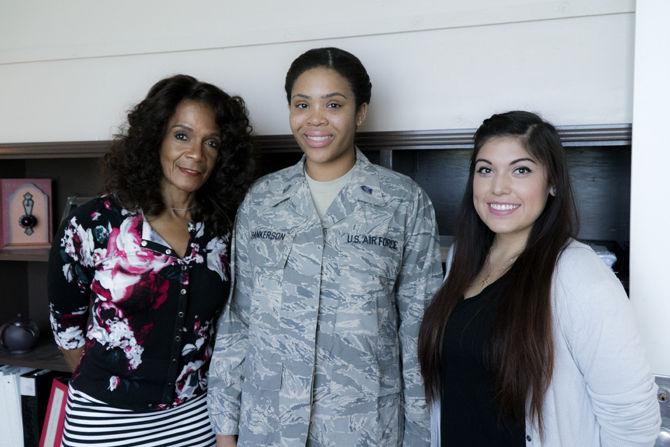The University’s Reserve Officer Training Corps cadets are trading training gear for dress blues for their military ball on April 15.
To prepare the cadets for the formal event, ROTC director of academic affairs and student development Linda Warmsley organized Military Traditions: Customs and Courtesies, a program introducing them to the social development side of the University’s ROTC
Curious and concerned about campus perception, Warmsley conducted an informal empirical study to see what outside students knew about the ROTC program. While most of the responses involved combat and war preparation, Warmsley said she wanted to paint the greater picture of ROTC’s purpose.
As one of ROTC’s required professional development modules, Military Traditions teaches cadets the social graces expected at formal military functions. In the military, Warmsley said ballroom etiquette is equally as important as battleground strategy.
“There’s no lab for manners and protocol,” Warmsley said. “We just wanted to bring this activity to life.”
After three months of planning, she recruited Capt. Mark Mosby, an Air Force instructor, to teach program participants how to approach a receiving line and how to properly toast. Mosby incorporated military traditions and tidbits of history into the nighttime lesson.
History reveals the act of toasting began as a way to demonstrate a degree of mutual trust between two political or military enemies, Mosby said. If they drank from the same source at the same time and suffered no ill effects, rapport was established.
Though today’s toast drastically differs in its significance, Mosby said the military-inspired tradition has withstood the test of time. Whether in a military setting or not, he said knowing how to give a nice toast is a useful skill to have.
Additionally, Mosby said he gave cadets pointers on the traditional receiving line, or the line at the entrance to formal events in which prominent officials stand in order of rank and importance. He said attendees must introduce themselves to the officers as they would hosts of a party.
While the lessons may seem like common sense, Mosby said knowledge of etiquette contributes to a lifelong skill set both inside and outside military settings.
“It’s not specifically military development — it’s complete personal development,” he said.
In a press release for the event, Warmsley said the human brain does not fully develop until the age of 25. Since students typically leave for college around 18 years old, there is a seven-year gap in their mental maturation.
Warmsley said ROTC offers guidance for this crucial period in young adulthood, and etiquette provides a structural basis for that development. When high school graduates leave home, ROTC picks up the duty of routinized education, she said in an interview.
“ROTC moves [students] from one developmental stage to the next,” Warmsley said.
Military Traditions program teaches cadets proper etiquette
April 6, 2016
LSU director of academic affairs and student development for ROTC Linda Warmsley, communication studies junior Paige Hankerson and sociology sophomore Maria Chavez on Wednesday, Apr. 06, 2016 in the military science building.
More to Discover








